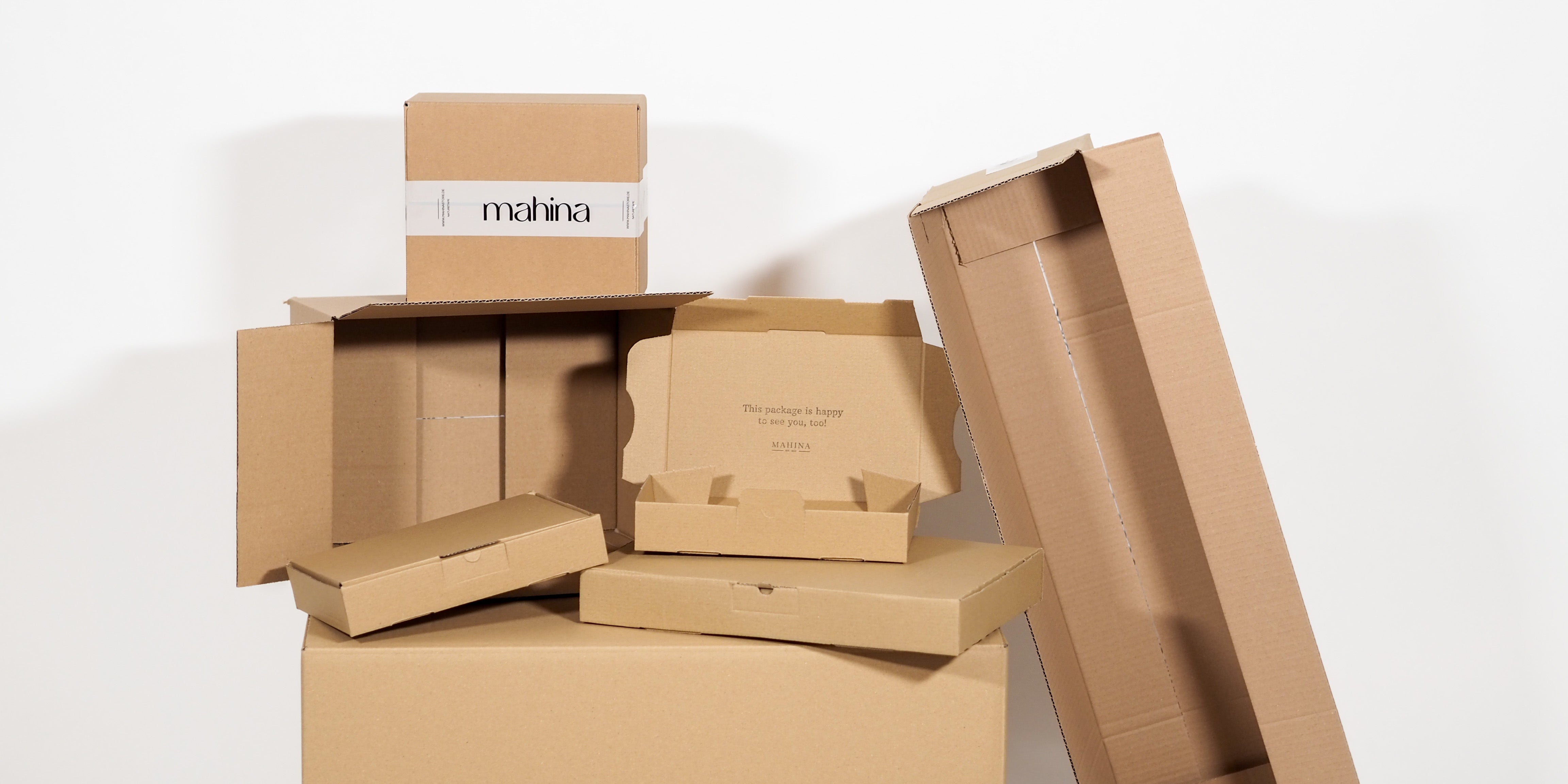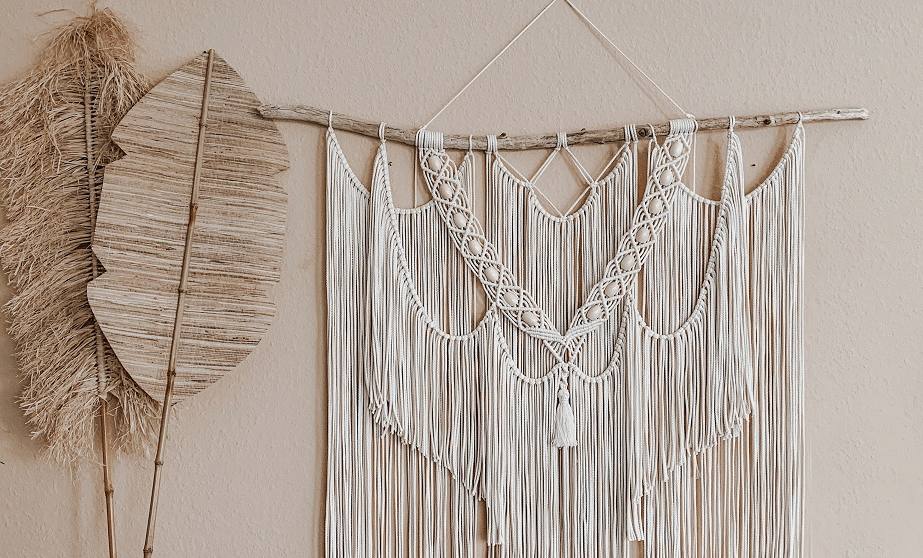Article: Plastic-free delivery - sustainability is a matter of course at mahina

Plastic-free delivery - sustainability is a matter of course at mahina
Online Shopping: Simple, fast and sustainable
Online shopping is easy, fast, and flexible. You don't have to stick to store opening hours; simply click, and the pretty item lands in your shopping cart – and later on, at your doorstep. But as convenient as online shopping is, it also comes with some disadvantages.
Many products, especially those from large corporations, are often shipped around the globe before reaching you. The carbon footprint of such goods is catastrophic. Furthermore, many items are produced in low-wage countries where environmental protection and fair working conditions are often nonexistent – despite the companies' advertising promises.
Packaging waste: A nightmare
Unfortunately, neither politics nor guidelines have managed to effectively reduce packaging waste in Germany. In international comparison, we fare poorly: Each of us produces around 227.55 kg of packaging waste annually – that's around 50 kg more than the European average. The growth of e-commerce is contributing significantly to this problem, as shipping not only generates CO2 but also enormous amounts of packaging waste. In addition to cardboard boxes, bubble wrap and other plastic packaging are a major problem. The consequences of plastic waste for the environment are devastating: marine creatures mistake plastic for food and die painful deaths. Plastic waste is also a threat on land, finding its way into the soil and waterways and often occurring in the form of microplastics.
Plastic-free online shopping
It's almost a given that we avoid plastic bags when shopping. Disposable tableware, cotton swabs, and plastic drinking straws are now banned. Awareness of sustainability is growing, but what about online retail? You can also shop online with a clear conscience, because there are stores that truly embrace sustainability and don't just engage in "greenwashing."
How do you recognize green online shops?
The first indicator of a "green online shop" is sustainable products. Don't be fooled, though, as many major brands recognize the trend and often use the term "sustainability" purely for marketing purposes. Pay attention to whether the goods are shipped CO2-neutrally and packaged sustainably. Smaller online shops often have shorter transport routes, as their warehouses are usually located in Germany. This means the products don't have to travel halfway around the world before they reach you.
The trend macrame and handmade
In addition to online shopping, handicrafts such as macramé, crochet, and knitting have also experienced a boom during the pandemic. Macramé, once considered hippie chic, is now a popular interior design feature, bringing exotic vibes into your home. The knotting technique originated in the Orient and has enjoyed great popularity since the 1970s.
If you would like to try out the knotting technique, you can find the right yarn in our online shop.
Our responsibility at mahina
At mahina, we specialize in home, decor, and living, and we also offer macrame workshops. Our roots lie in the handmade sector, and sustainability is important to us. We recognize that it's up to us to reduce plastic and packaging waste. That's why we ship all orders plastic-free. When necessary, we recycle the plastic we receive during deliveries. Boxes are reused, so you may receive a box that doesn't look perfect—but it's what's inside that counts! Every customer receives a "recycle sticker" with a request to reuse the boxes as well.
Why cardboard boxes should be reused
The most important goal in environmental protection is waste prevention. When we reuse cardboard, we save valuable resources like water and energy. While paper can be recycled, this process requires fresh wood fibers and consumes resources. Let's use cardboard as long as it serves its purpose before returning it to the cycle. This way, we conserve water resources and save energy.
Make a difference with us and shop sustainably!
xx Nina from mahina


